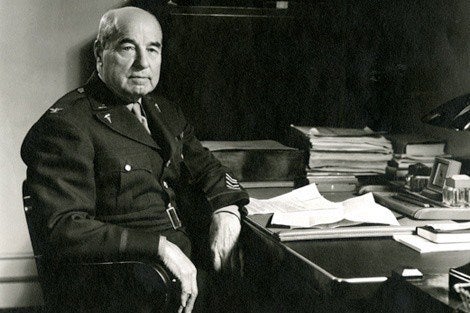“The sun came out early and fiercely . . . As the hours wore on and noon was reached at times one felt the desire to become a little hysterical and to repress a scream and throw oneself into the forest at the side of the trail.”
So wrote Richard Pearson Strong in the 320-page diary he kept while leading the 1926-27 Harvard African Expedition, which crisscrossed the remote interior of Liberia and then cut 3,500 miles across central Africa to end at Mombasa Kenya.
A pioneer in researching tropical diseases, Strong arrived at Harvard in 1913, becoming the University’s first-ever Professor of Tropical Medicine and one of the first faculty members at the newly launched School for Health Officers. Traveling, researching, and publishing at a preternatural pace, he packed several lifetimes worth of achievements into a single career, accumulating an encyclopedic knowledge of diseases that few Westerners would recognize. His specialty was onchocerciasis, or river blindness, a disease that is spread by black flies and causes intense itching, pain, and in some cases, blindness and disfiguration. While river blindness is not fatal, the suffering it causes can be so extreme that it has been known to lead to suicide and the pouring of boiling water on skin in an effort to stop the itching.
Four years after Strong’s death in 1948, his longtime colleague and fellow explorer George Cheever Shattuck had this to say: “When Richard undertook a task, he carried it through with all his strength and was never deterred by difficulties. In the field, he was a stoic.” And yet, for all the dangers he braved—and all he accomplished, laying the foundation for HSPH’s future leadership in tropical public health—Strong’s reflections on his long career are marked by a certain poignancy. “[M]any of us have not attained that measure of success in research that we have sought,” he said, pointing instead to the “inner satisfaction” of scientific research.
Is there an event, person, or discovery in Harvard School of Public Health history that you’d like to read about? Send your suggestions to centennial@hsph.harvard.edu.
